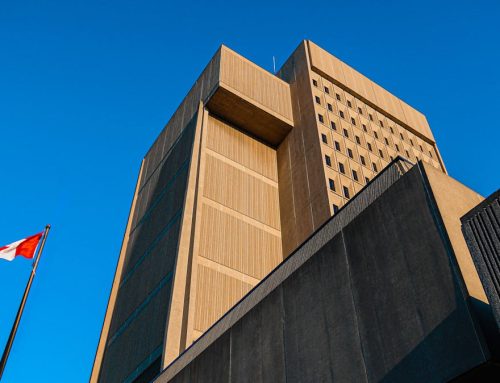If you’ve received a DUI charge in Canada, you may be worried about the impact that this charge will have on your life, including what the legal consequences will be, whether you’ll be able to drive to work or school, and how the charge will affect your reputation in your community. Many people make mistakes, but with experienced legal representation from a DUI lawyer, you will be able to get the best possible results.
Jaswal & Krueger is a criminal law firm representing clients who have been accused of all types of DUI matters from Immediate Roadside Prohibitions to criminal charges. They can help people like you who may have made a mistake and are looking for ways to deal with the charges with the least impact on your life, freedom, and livelihood.
What is a DUI Charge?
DUI stands for Driving Under the Influence (of alcohol or drugs). Impaired driving can pose a danger not just to the impaired driver but to everyone on the roads. Impaired driving is considered a criminal offence in Canada. Although DUI can cover driving while intoxicated on drugs or alcohol, it’s most commonly used to describe driving under the influence of alcohol alone.
Wile DUI is a commonly used phrase, it is not a technical legal term. In British Columbia, if the police suspect you of drinking and driving, they might proceed with an Immediate Roadside Prohibition, an Administrative Driving Prohibition or criminal charges of impaired driving or driving over 80. You can be charged with a criminal offence in Canada if your Blood Alcohol Content (BAC) is higher than 80mg of alcohol in 100mg of blood, or .08%. This is the same legal limit as in the US. A police officer may suspect you have been drinking if your driving is erratic or dangerous. When they pull you over, they will ask you to take a breath test (breathalyzer) to measure your BAC. If you refuse to take a breathalyzer test, you can be charged with an offense.
What is the Penalty For a DUI in Canada?
While the punishment for a criminal offence is the same across Canada, each province has its own penalties for provincial DUI offences. In British Columbia, for example, if your blood alcohol level is tested at higher than .05%, then you may receive an Immediate Roadside Prohibition and be subject to these penalties:
- First Offence of a WARN (BAC above 0.05): immediate license suspension, three days license seizure, a $200 fine, and a $250 relicensing fee.
- Second Offence of a WARN (within a five-year period): 7-day license suspension and a vehicle impound, $300 fine, a $250 relicensing fee, and you’ll be required to enroll in a responsible driver course.
- Third Offence of a WARN: 30-day license suspension and seizure of your vehicle, $400 fine, a $250 relicensing fee, and you’ll be required to enroll in a responsible driver course and have an interlock device installed in your motor vehicle. This is a device that requires you to blow into it before you start the car, ensuring that there is no alcohol in your system.
- First Offence of FAIL (BAC above 0.05) or REFUSAL: 90-day license suspension and 30-day vehicle impoundment, $500 fine, a $250 relicensing fee, and you’ll be required to enroll in a responsible driver course. You may also be required to install an interlock device.
As you can see, even if you didn’t receive a true criminal charge, the consequences of even an Immediate Roadside Prohibition in British Columbia are quite strict. On the other hand, criminal charges can result in a minimum fine of $1000 and a 1-year driving ban across Canada. Having a DUI lawyer with experience defending people charged with driving under the influence can help mitigate these penalties or even have the charges dismissed altogether.
What is a DUI Pardon?
If you’ve had the unforunate situation of being conviced of a DUI offence, know that DUI convictions are one of the most-pardoned charges in Canada. As per the Canadian Criminal Code, if you are convicted of a DUI charge then you and your lawyer may apply for a record suspension (formally a pardon). However, Immediate Roadside Prohibitions, because they only go on a driving record rather than a criminal record, can only be removed by challenging them within seven days of receiving the paperwork from a police officer.
A Canadian DUI Pardon is now known as a Record Suspension. It’s an application to the Parole board of Canada (PBC) that petitions to clear your criminal record of your drunk driving arrest and driving under the influence charge. Should the PBC determine that you’re eligible for a removal of the impaired driving charge, then your criminal record will be clear in Canada. After this, when a prospective employer, landlord, school, or other agency conducts criminal background checks on you, they will not find the impaired driving charges.
How Can I Obtain a Canada DUI Pardon?
For DUI pardons, there are a few eligibility criteria that you must adhere to. Once you’ve met all the requirements, then you may apply for your pardon, however, you must adhere to the criteria during the pardon waiting period.
You must complete all your sentences to apply for a Record Suspension, including:
- Paying all fines, restitution, compensation orders, and surcharges
- Completing any imprisonment sentences and paroles
- Complete any probation orders
Gathering these documents can take time, so your attorney may wish to begin several months before your eligibility date.
Once the PBC receives your pardon application, then they may take from six to nine months to review it and grant your pardon. However, if you have indictable offenses on your criminal record, then your record suspension may take up to 12 months to review.
Worried About the Consequences of a DUI Conviction? Our Criminal Defence Lawyers Can Help
Following a DUI arrest, the first thing you should do is contact a criminal defence lawyer. With the support of an experienced lawyer, you get the peace of mind that comes with knowing that you will get accurate, honest answers to your legal questions, as well as a knowledgeable advocate at your side.
At Jaswal & Krueger, our legal team has extensive experience in dealing with DUI charges before they become convicitons, but can also help you with obtaining a DUI pardon. Canada as a whole, and British Columbia in particular, can punish impaired driving severely. To avoid the long-term consequences and limitations associated with a criminal conviction, it’s best to seek legal help with any impaired driving charge as soon as possible.
Contact us today to discuss your case.












